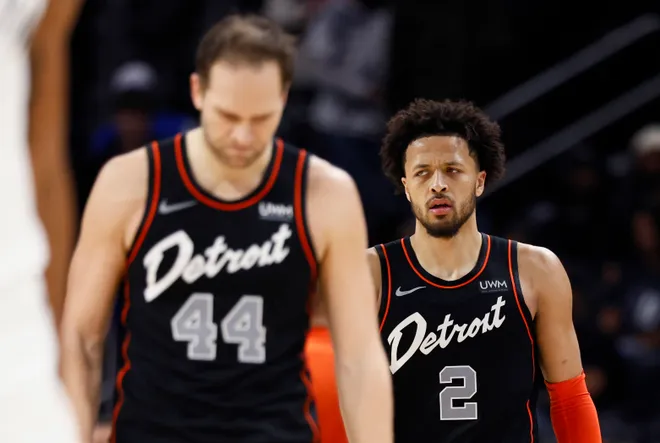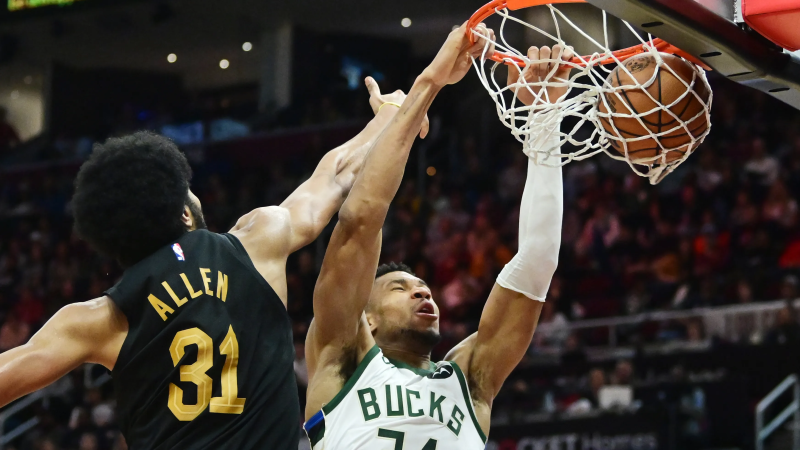The Detroit Pistons, amid a 28-game losing streak, try to avoid NBA history
Detroit’s 118-122 overtime loss to Boston Thursday encapsulated many of the Pistons’ problems.
∎ Bad defense
∎ Offensive issues
∎ Roster problems
∎ Coaching
∎ Not knowing how to maintain leads and close out games
It was all on display in the loss, a game in which Detroit led by 19 at halfitme.
It was the Pistons’ 28th consecutive loss, tying the record for most consecutive losses over two seasons, a game after setting the record for most consecutive losses in a single season at 27. They can set another record for futility in Saturday’s home game against Toronto.
The Pistons had chances against the Celtics and the game before against Brooklyn. They have had other opportunities to win but a combination of all those factors have prohibited them from ending one of sports’ all-time worst losing streaks.
Here’s a look at why the 2-29 Pistons (and on pace for the worst record in NBA history) are so bad this season:

Offense
The Pistons are 28th offensively, scoring 107.9 points per 100 possessions, just ahead of Memphis (107.1) and San Antonio (107.6) and one spot behind Portland (109.7).
They are 29th in turnover percentage and turnovers per game, 22nd in field goal percentage (.465), 28th in 3-point percentage (.334) and 29th in 3-pointers made per game (10).
When a team is committing turnovers and missing that many shots, it’s a recipe for bad offense. It didn’t help Detroit that Bojan Bogdanovic missed the season’s first 19 games and wasn’t in the lineup until Dec. 2.
Third-year guard Cade Cunningham, who missed the final 70 games with a stress fracture in his left leg Injury last season, is starting to find his offense. This month, he scored a career-high 43 points against Atlanta, had 28 points and 10 assists against Utah, had 41 points against Brooklyn and 31 points nine assists against Boston.
Defense
Detroit has the No. 26 defense, allowing 119 points per 100 possessions. It ranks 24th in field goal percentage allowed, 21st in 3-point field goal percentage allowed, 29th in points allowed off turnovers per game (20.3) and 24th in points in the paint allowed per game (53.6). The Pistons are not creating enough turnovers either – 27th in opponents’ turnovers per game and 29th in steals per game.
Playing defense is tough, especially in today’s NBA with so many gifted offensive players and rules that, in general, favor the offense.
The Pistons play several young players, and it’s a slow-growth learning curve.
Trouble closing out games
The Pistons have played in 14 “clutch” games – clutch defined by the NBA as games within five points with five or fewer minutes remaining or in overtime. They have lost 13 of those games, including this week’s losses to Brooklyn and Boston, according to NBA data.
Detroit has played 42 minutes of clutch time – almost a full game. In that span, the Pistons have shot 23.3% from the field, 16.1% on 3s and scored just 59 points. Their opponents have shot 51.4% from the field, 36% on 3 and scored 129 points – a 70-point margin. In nine minutes of clutch time Thursday, Boston outscored Detroit 29-16. In two minutes of clutch time Tuesday, the Nets outscored the Pistons 13-3.
Learning how to execute in tight-game situations and finish close games with a victory is a skill. It requires focus, effort and attention to detail.
Pistons coach Monty Williams
The blame for the losing streak is spread throughout the organization. Maybe not evenly. But this debacle touches everyone, including Pistons coach Monty Williams who is in his first year with the team.
It’s a players’ league without question. They make plays – or don’t make plays – that determine outcomes. However, a good coach gets his team a victory when it should’ve been a loss multiple times a season.
A play call. A substitution. A timeout. A defensive change. Something that sways the game.
Williams has been unable to do that.
He took responsibility after the Brooklyn loss, which is what he should do this situation. The coach needs to shift the focus from his players to himself.
But he also needs to help his team get a victory.
Roster construction
Detroit’s front office, put in charge by owner Tom Gores, missed on a couple of draft picks, made trades that haven’t work and it’s not exactly a free-agent destination right now. At the start of the season, the Pistons had the eighth-youngest team in the league.
Twelve players on the roster have been in the league four or fewer seasons, and several of those players are getting significant minutes.
To be fair, injuries to Monte Morris and Bogdanovic have not helped.
What are the Pistons’ positives?
This team wants to win. That’s apparent.
Cunningham’s development – there’s All-Star potential with Cunningham – is pivotal to Detroit this season and in the future. He can play, and the Pistons need him. Second-year center Jalen Duren can be a solid big, especially defensively and with his rebounding. Ausar Thompson is a work in progress offensively but has a high motor, works hard and can be a defensive force. Isaiah Stewart is another player who can be a solid big man, and the Pistons must find a way to get something out of Jaden Ivey.

Disclaimer: The copyright of this article belongs to the original author. Reposting this article is solely for the purpose of information dissemination and does not constitute any investment advice. If there is any infringement, please contact us immediately. We will make corrections or deletions as necessary. Thank you.







